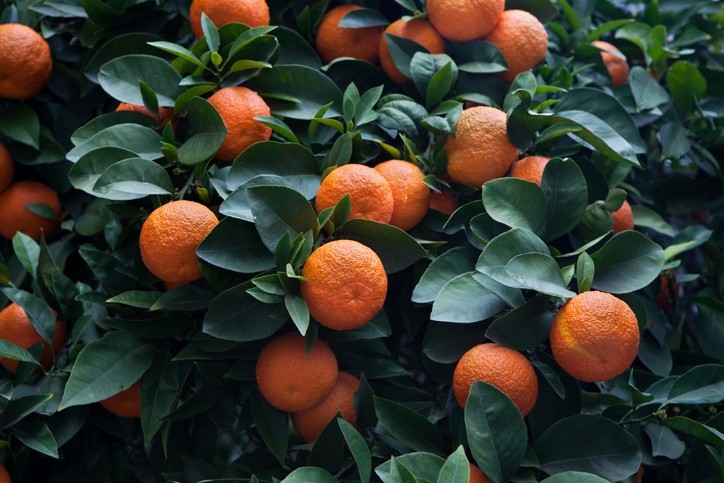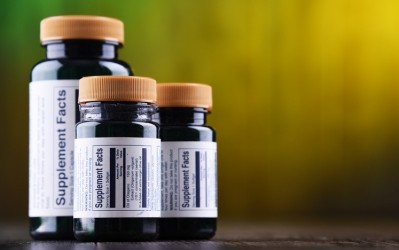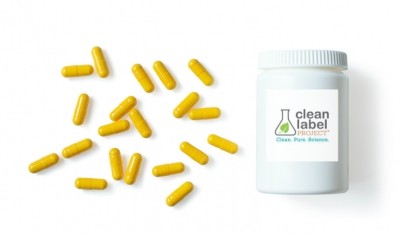FDA study finds hidden synthetic ingredients, poor quality control in bitter orange supplements

The recent study was published in the journal Drug Testing & Analysis. It was conducted by researchers in FDA’s Center for Food Safety and Applied Nutrition (CFSAN).
In the study the researchers purchased 59 products that were labeled as containing ‘bitter orange,’ whether it was purported to be the primary active ingredient or as part of a broader formula. Some of the products were suggested for inclusion in the study by the Office of Dietary Supplement Programs while others were discovered and purchased as a result of a simple internet search.
Bitter orange (Citrus aurantium), also commonly known as Seville Orange, is a citrus species native to eastern Africa and Southeast Asia that has been cultivated in the Mediterranean region and in the United States. The astringent, bitter unripe fruit has been used as a digestive aid in some traditional medicinal systems.
Bitter orange benefited from ephedra ban
The researchers noted that bitter orange extracts have gained popularity in the marketplace after the ephedra ban. Formulators often use these ingredients for their purported thermogenic qualities in products targeted toward weight management and sports nutrition.
The researchers subjected the products to a novel analysis. One of the purposes of the study was to develop and validate a fast and accurate LC-MS/MS method to detect and quantify five natural phenethylamines present in the botanical (synephrine, octopamine, tyramine, N-methyltyramine and hordenine) and four synthetic phenethylamines that have been found in products in the marketplace. Those are phenylephrine, methylsynephrine, etilefrine and isopropyloctopamine.
When does synephrine content cross the NDI line?
The study noted that most commercial bitter orange extracts are standardized to 6% to 8% synephrine. But the researchers said that extracts claiming synephrine content as high as 98% have been reported. FDA has in at least one instance ruled that a bitter orange extract standardized to 30% synephrine content was unlawful because it constituted a New Dietary Ingredient for which no notification was on file.
Quality problems, undeclared ingredients found
Many of the products tested did not specify synephrine content on their labels. But the researchers found that of the 23 products that did, only five actually had the stated amounts. In addition, the study found the synthetic amines methylsynephrine (up to 240 mg/daily serving) in six products and isopropyloctopamine (up to 76 mg/daily serving) in one product. The researchers noted there is no data on the effects of these substances in humans.
The authors concluded that the products generally put up a poor showing on quality measures, and potentially raise some safety concerns when the lack of data for the synthetic components is taken into account.
“Our data shows that many of these supplements contain elevated levels of synephrine, octopamine and hordenine. Additionally, some products were identified to contain methylsynephrine and isopropyloctopamine, synthetic amines not meeting the definition of a dietary ingredient. Finally, out of the limited number of bitter orange products analyzed in this study, very few appear to meet claims for their label concentration declarations,” they concluded.
AHPA: Results don’t necessarily imply public health crisis
Holly Johnson, PhD, chief science officer of the American Herbal Products Association, said while AHPA does not support the inclusion of undeclared synthetic ingredients nor of sloppy quality control when it comes to ingredient concentrations, she’s not sure the study raises a pressing safety concern for these products.
“Although there has been some debate, risk assessments by Health Canada and Food Standards Australia New Zealand (FSANZ) concluded that consuming bitter orange extracts with 40-98 mg/day synephrine did not result in adverse effects and have established recommended daily limits for synephrine. While synthetic amines not meeting the definition of a dietary ingredient were found in some products, and synephrine levels exceeded label claim in some, of the 59 products investigated by CFSAN, only two were found to contain over 98 mg/day synephrine,” she said.
Nevertheless, she said that the products containing undeclared synthetic ingredients do not meet the definition of dietary supplements and are unlawfully marketed as such. She said AHPA would support enforcement actions against those products.
“Although the paper does not reveal the brand names of the supplements tested, we expect and applaud subsequent FDA enforcement actions to remove unlawful products from the marketplace,” Johnson said.
BAPP: Manufacturers of bitter orange supplements should be aware of these risks
Writing in the Botanical Adulterants Monitor, experts at the ABC-AHP-NCNPR Botanical Adulterants Prevention Program commented: “Dietary supplements sold for weight loss and in the sports nutrition category are known to be among those most frequently adulterated. Of particular concern is the illegal sale of undeclared conventional drugs inappropriately marketed as dietary supplements. Therefore, it is reasonable to expect that the US FDA would keep a close eye on products marketed in these two categories.
“Synephrine and other phenethylamines are known to have mild stimulant effects and to activate metabolism. However, when combined with other stimulants and strenuous exercise, high intake of phenethylamines is known to cause serious adverse effects.
“This investigation suggests that those dietary supplements that claim to be made from bitter orange peel without added pure compounds are generally authentic, although the contents in p-synephrine are highly variable and may not reflect the label contents.
“Purchasing “dietary supplements” that list synephrine, hordenine, octopamine, or any other phenethylamine as an ingredient are best avoided since they do not appear to be considered lawful by the FDA and have a high risk of containing synthetic adulterants. Manufacturers of bitter orange supplements should be aware of these risks and take the necessary steps to check for undeclared synthetic amines,” stated the Botanical Adulterants Monitor.
Source: Drug Testing & Analysis
2020 Jun 4. doi: 10.1002/dta.2871. Online ahead of print
Analysis of Bitter Orange Dietary Supplements for Natural and Synthetic Phenethylamines by LC-MS/MS
Authors: Pawar RS, Sagi S, Leontyev D
Editor's Note: This article was updated on Sept 22, 2020 to include new comments and context from the ABC-AHP-NCNPR Botanical Adulterants Prevention Program
















